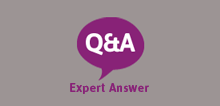Sick pay
If you can’t work due to covid or another illness you may be entitled to statutory sick pay. Even if you’re not sick right now, it’s still important to know what’s covered by law when it comes to illness and work. The Mix looks at your rights to sick pay and explains typical company sick pay schemes.

Do I always have to phone in sick?
Let work know as soon as possible if you can’t work, whether it’s remote or in person, because of illness. If you’re not physically able to do this, don’t just forget about it. Make sure to ask a friend or family member to call on your behalf.
When do I need a fit note to claim sick pay?
Usually you’re entitled to seven days off without a medical certificate. After seven days your doctor has to write a fit note confirming that they have advised you not to work. There was a temporary change due to the pandemic. This meant that employers could only ask employees for a fit note after 28 days of sickness (including non-working days). Unfortunately, this has come to an end and the seven-day rule has been reinstated.
For more information on fit notes, see our article ‘how to get a sick note from the doctor’ here.
When will I receive sick pay?
Your employer can start paying you the minimum Statutory Sick Pay (SSP) after four days of sick leave a.k.a the qualifying day, if there isn’t a company policy in place.
How much is statutory sick pay?
The standard rate for SSP is £109.40 a week. And your employer will work out a daily rate, if necessary, by dividing the weekly rate by the number of days you’d normally work in that week.
Sick pay for a recurring illness
If you were getting SSP sometime in the last eight weeks, and are forced to take sick leave again because of a long term, recurring sickness, the SSP will restart again from your first day off work. However, it’s worth keeping in mind that SSP can only be paid for a maximum of 28 weeks.
Typical company sick pay schemes
There are slightly different types of sick pay depending on your company. But in a typical company sick pay scheme you would receive your usual salary up to a specified number of weeks, and then get half-pay for another (specified) period beyond that. Any additional sick leave after this time will be unpaid. Having said this, your company will probably have its own policy on sick pay. So it’s always best to check.
But we should mention that any sick pay policy tends to take effect after a minimum period of employment, usually three months.
Can employers claim back SSP?
Generally speaking, employers can’t claim back SSP from the government. There was only one exception. During the pandemic, since loads of people were off work sick due to coronavirus, the government introduced the Coronavirus (COVID-19) Statutory Sick Pay Rebate Scheme.
If current or former staff have been off work due to covid, the rebate scheme will reimburse the business for up to two weeks of SSP. However, the last date for making a claim was 24th March 2022. So now it’s back to business as usual.
My company has its own sick pay policy, but my employer says that I’m not eligible because I didn’t follow the correct procedure. Is that fair?
Some sick pay schemes are at the employer’s discretion, which means your employer can choose not to give you sick pay if they feel it’s unwarranted. But your employer is still legally obligated to comply with what you could reasonably expect from SSP.
Plus, if your employer decides not to pay you – for whatever reason – then they can’t turn around and pay one of your co-workers if they have the exact same, or a similar, situation to you. Even if you don’t have a national insurance number, this is discrimination. You can learn more about discrimination at work here.
Can anyone get SSP?
Unfortunately not. Your average earnings have to be at least £120 a week (before tax) before you’re eligible for SSP.
My employer is offering me less than the basic SSP. Is that allowed?
Absolutely not. Your employer can’t offer any scheme that falls below the legal minimum. What’s more, details of your company’s sick pay entitlement should be included in your written statement of employment. And you should get that within two months of starting work.
This applies to every job you have. So if you have two or more jobs, you can claim SSP from both of them separately.
My employer says I’m not entitled to company sick pay because my fixed-term contract has come to an end. Is that right?
We hate to be the bearer of bad news, but technically speaking it is. However, you may still be eligible for SSP, but paid to you by the state rather than by your employer. Your employer should give you a SSP1 form, which they have filled in (just make sure they’ve already filled in the bits that they need to).
What happens when SSP comes to an end?
Your employer has to fill in the same SSP1 form, stating why SSP is ending and the last date of payment. If you’re still unable to work due to illness this can then be used to support a claim for Employment and Support Allowance.
I’m self-employed. Am I eligible for any support when I get sick?
Yes you are, but not SSP. You can claim Employment and Support Allowance straight away. Contact Jobcentre Plus on 0800 0556 688.
You can also contact the Citizen’s Advice Bureau (CAB) for more information on sick pay. You can either call them on 08444 77 20 20 or find your nearest centre with their search box.
Next Steps
- Chat about this subject on our Discussion Boards.
By Nishika Melwani
Updated on 01-May-2022
No featured article










